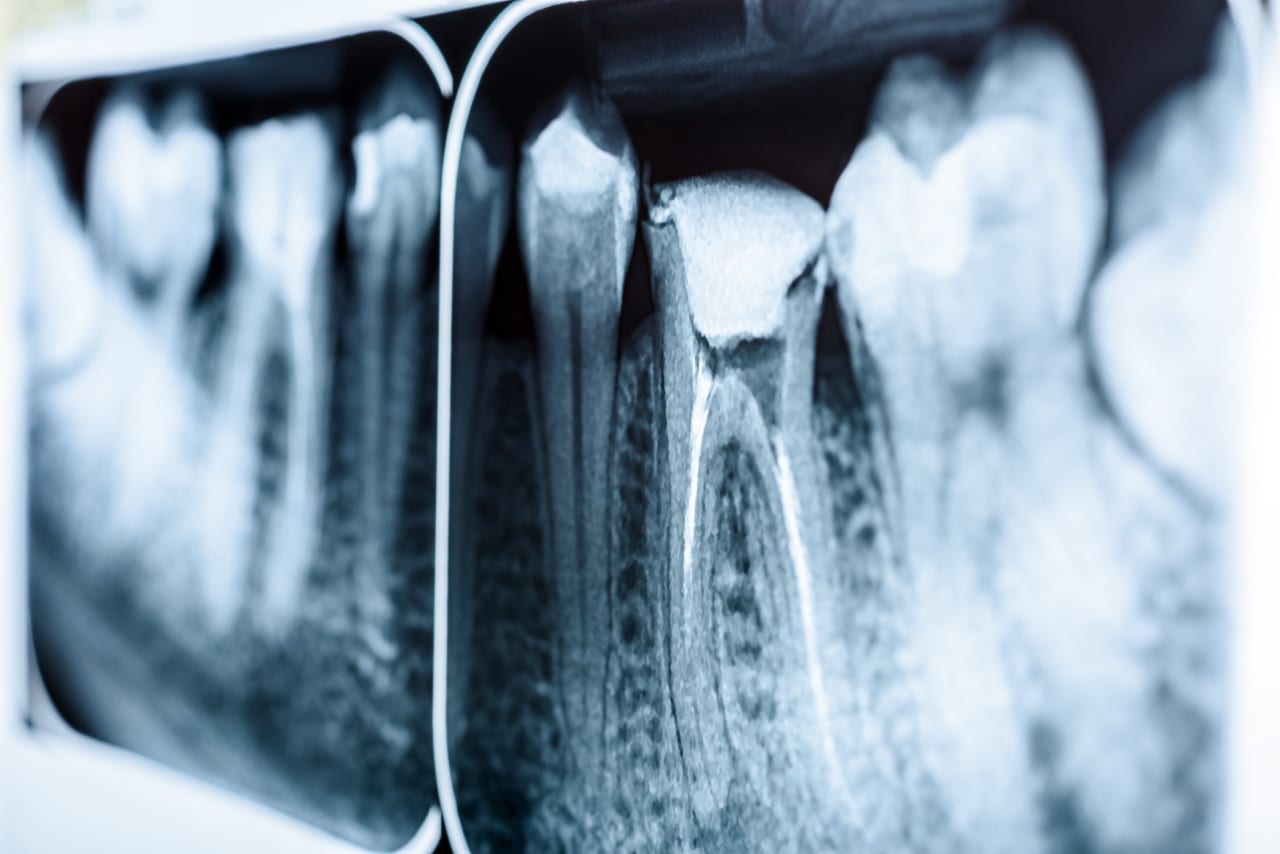“Endo” is the Greek word for “inside” and “odont” is Greek for “tooth.” Endodontic treatment treats the inside of the tooth. Root canal treatment is one type of endodontic treatment and is a procedure designed to clean, disinfect, and relieve the pain associated with damaged or infected pulp. This endodontic treatment prepares affected teeth for future restorations and to save them from further damage. A root canal is a serious procedure, but one that our specialists at Bolouri Dental Group handle every day. Before engaging in any type of dental work, it’s important to know the facts about root canals.
When do you need root canal treatment?
While teeth are one of the hardest tissues in your body, they have a sensitive inner core full of vessels, nerves, and arteries within a region called the dental pulp. Untreated cavities, trauma or fractures can infect and injure the structures within the pulp and root of a tooth requiring a root canal treatment.
One of the main reasons for root canal treatment is putting off dental treatment. With constant stimulation, the pulp of decaying teeth can get swollen and become infected. Over time, the infection or decay will create an irreversible process called necrosis that leads to abscesses and pain, making the root canal treatment necessary.
What are the symptoms?
The most frequent symptoms of the need for root canal treatments are the pain and swelling associated with the affected tooth. It can start as a mild pain when eating or drinking cold and hot meals. However, the pain can get dull and spontaneous as the infection progresses over time. After a week or two, mild pain can become severe and continue into the nights, affecting your daily tasks and activities. In severe cases, the infection can pass to an asymptomatic phase, without any pain but affecting the ligament bellow teeth, creating abscesses and swollen gum.
Why shouldn’t you overlook your root canal treatment?
Toothache and other types of dental discomfort are some of the main reasons to visit the dentist. Thereby, neglecting dental treatment for mild symptoms can lead to more complicated and severe consequences. For instance, an old filling with mild discomfort could turn into more complex and costly dental treatment alternatives. Moreover, while a root canal treatment cannot recover or save the dental pulp, the treatment saves the tooth, allowing it to stay in the mouth, maintaining its function. Fortunately, alternatives like root canals allow us to maintain dental structures in the arcade, avoiding further structural complications.
Finally, thanks to technological advances, root canals are faster and more comfortable than ever, allowing you to have your treatment done in just one or two sessions.
How is a root canal treatment performed?
During a root canal treatment, the endodontist performs a delicate, meticulous, and painless dental procedure thanks to local or general anesthesia.
First, the clinician performs a complete clinical exam and takes some x-rays to identify, locate, measure the root canal system. Then, he cleans and disinfects the root canals by removing all the affected pulp carefully.
Secondly, the specialist shapes and prepares the root canal system entirely, smoothing the irregular anatomy of the roots. To do so, dentists use specialized equipment and instruments that allow the final step of the process.
Finally, after getting the roots prepared, the dentist fills the space inside the tooth with a plastic rubber-like material called gutta-percha. During this step, the root canals get completely sealed, saving the tooth and avoiding further infection or decay.
After the root canal treatment, the dentist performs the final restoration over the root with fillings, crowns, or other types of prostheses.
Why is visiting the dentist so important?
Visiting the dentist regularly will not only help keep your teeth and mouth healthy, but will also help keep the rest of your body healthy. Dental care is important because it:
- Helps prevent tooth decay
- Protects against periodontal (gum) disease, which can lead to tooth and bone loss
- Prevents bad breath – brushing, flossing, and seeing the dentist regularly will help reduce the amount of bacteria in your mouth that causes bad breath
References
Estrela, C., Holland, R., de Araújo Estrela, C. R., Alencar, A. H. G., Sousa-Neto, M. D., & Pécora, J. D. (2014). Characterization of successful root canal treatment. Brazilian Dental Journal. https://doi.org/10.1590/0103-6440201302356
Sjögren, U., Hägglund, B., Sundqvist, G., & Wing, K. (1990). Factors affecting the long-term results of endodontic treatment. Journal of Endodontics. https://doi.org/10.1016/S0099-2399(07)80180-4

